Key takeaways
- Zoom revolutionizes political campaigns by enhancing voter engagement and accessibility, allowing participation from home.
- Technical challenges, such as connectivity issues and managing virtual interactions, require candidates and moderators to adapt quickly and effectively.
- Best practices for successful Zoom forums include thorough preparation, setting clear guidelines, and leveraging Zoom’s features for improved interaction.
- Authenticity and active participation are crucial for maintaining voter interest and building trust in a virtual environment.
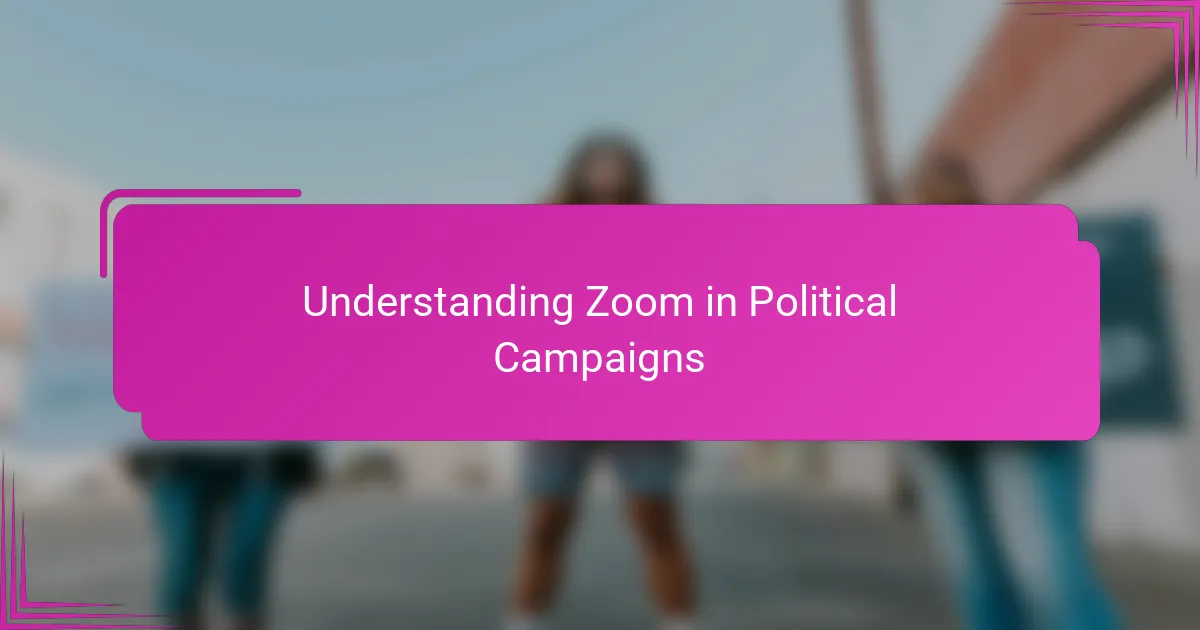
Understanding Zoom in Political Campaigns
When I first started using Zoom for voter forums, I quickly realized how it reshaped the way campaigns connect with the electorate. It’s not just a tool; it’s a virtual meeting place where candidates can engage voters directly, breaking down physical barriers that once limited outreach. Have you ever wondered how a digital handshake feels compared to an in-person one? For me, Zoom brings a unique mix of intimacy and distance that challenges traditional campaign dynamics.
From my experience, Zoom’s ability to reach a wide audience simultaneously without the costs and logistics of physical events is a game-changer. But it also demands a different skill set—candidates must be tech-savvy, quick on their feet, and adept at reading virtual cues. This digital shift forces campaigns to rethink engagement strategies, blending authenticity with the constraints of a screen.
Moreover, using Zoom in political campaigns adds a new layer of transparency and accessibility. I find it fascinating how voters can participate from the comfort of their homes, asking questions live without feeling intimidated. Does this level the playing field or create new challenges in maintaining voter attention? It’s a question I often ask myself as I navigate these virtual forums.
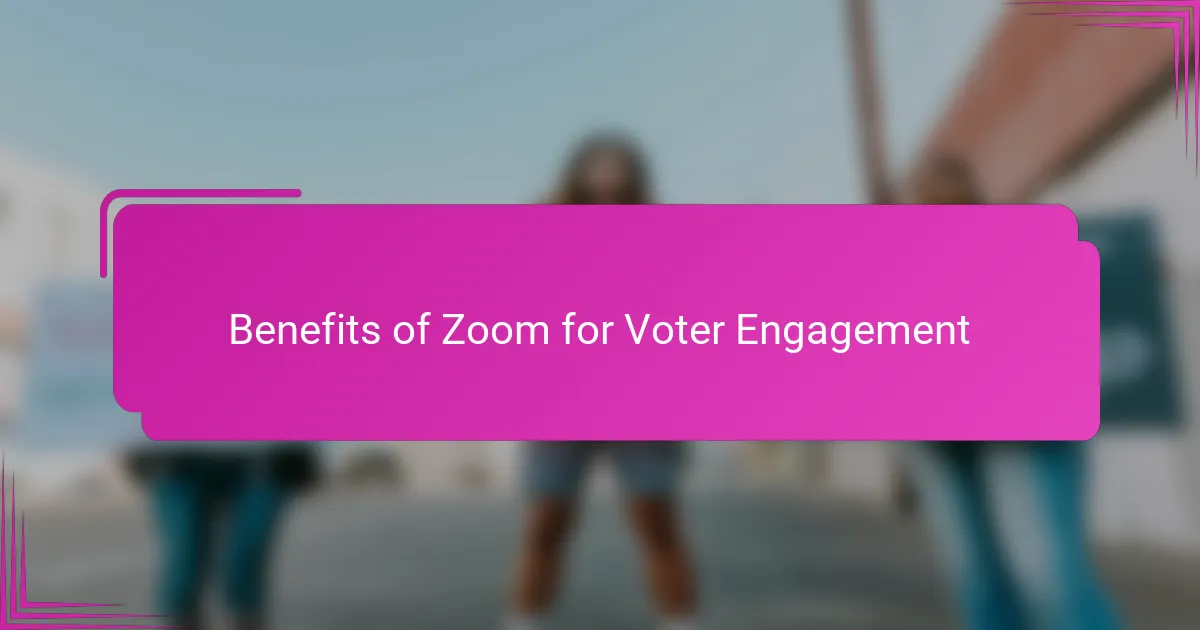
Benefits of Zoom for Voter Engagement
One of the biggest benefits I’ve noticed with Zoom is how it opens the door for broader voter engagement. Suddenly, people who might never attend a traditional in-person forum can join right from their living rooms. It makes me wonder: are we reaching new demographics who feel more comfortable asking questions online?
Another advantage is the immediacy that Zoom offers. I recall a particular forum where a voter’s question popped up unexpectedly, and the candidate responded in real time, creating a genuine moment of connection. That instant interaction feels more personal than canned speeches, don’t you think?
Lastly, the cost and time savings can’t be overlooked. Organizing physical events is often expensive and draining. With Zoom, campaigns can host multiple forums in a week without burning out staff or volunteers. From where I stand, that flexibility translates directly into sustained voter engagement and momentum.
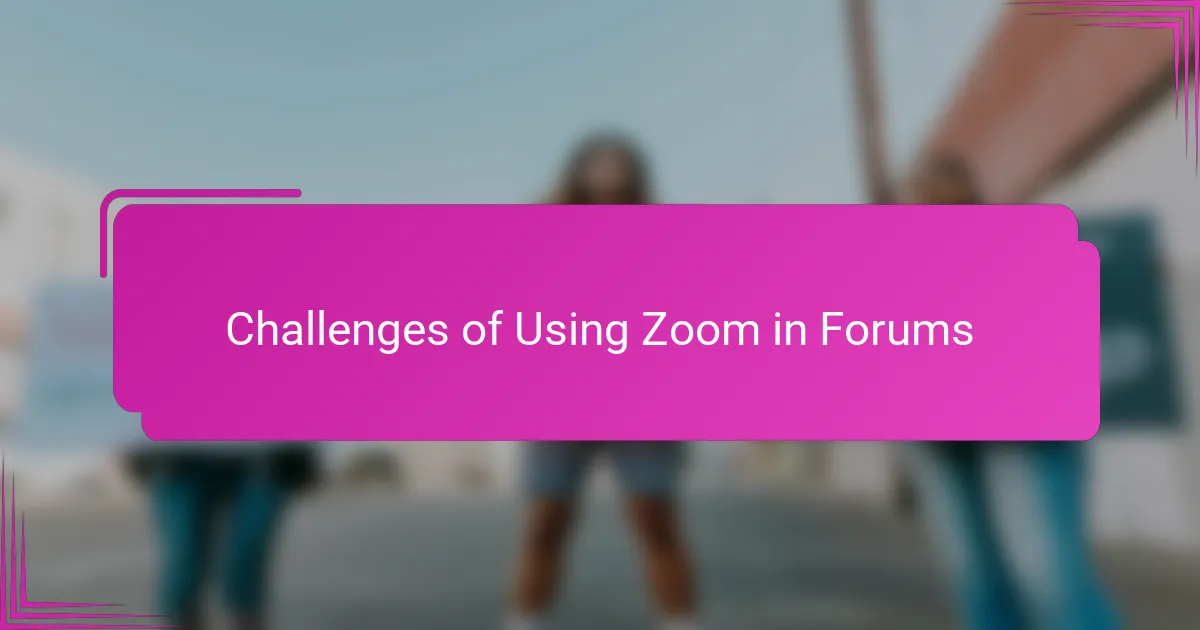
Challenges of Using Zoom in Forums
One challenge I’ve repeatedly encountered with Zoom forums is the unpredictability of technology itself. Sometimes, a candidate’s connection lags or audio cuts out just when the momentum is building. Have you ever felt the frustration of a crucial point getting lost in a frozen screen? It reminded me how much these glitches can undermine the impact of what should be a powerful conversation.
Another tricky aspect is managing the flow of questions from voters in a virtual space. On Zoom, it’s all too easy for several people to talk over one another or for important voices to get drowned out by the chat’s rapid pace. I’ve learned firsthand that moderators need a strong hand and plenty of patience to keep things running smoothly—skills that aren’t always evident at first.
Lastly, there’s the challenge of maintaining voter engagement when the physical cues are gone. Without the energy of a live crowd or the simple act of eye contact, I sometimes catch myself wondering if listeners are truly present or multitasking elsewhere. How do we replicate that sense of connection through a screen? I’m still exploring strategies, but it’s clear this digital divide tests even the most experienced communicators.
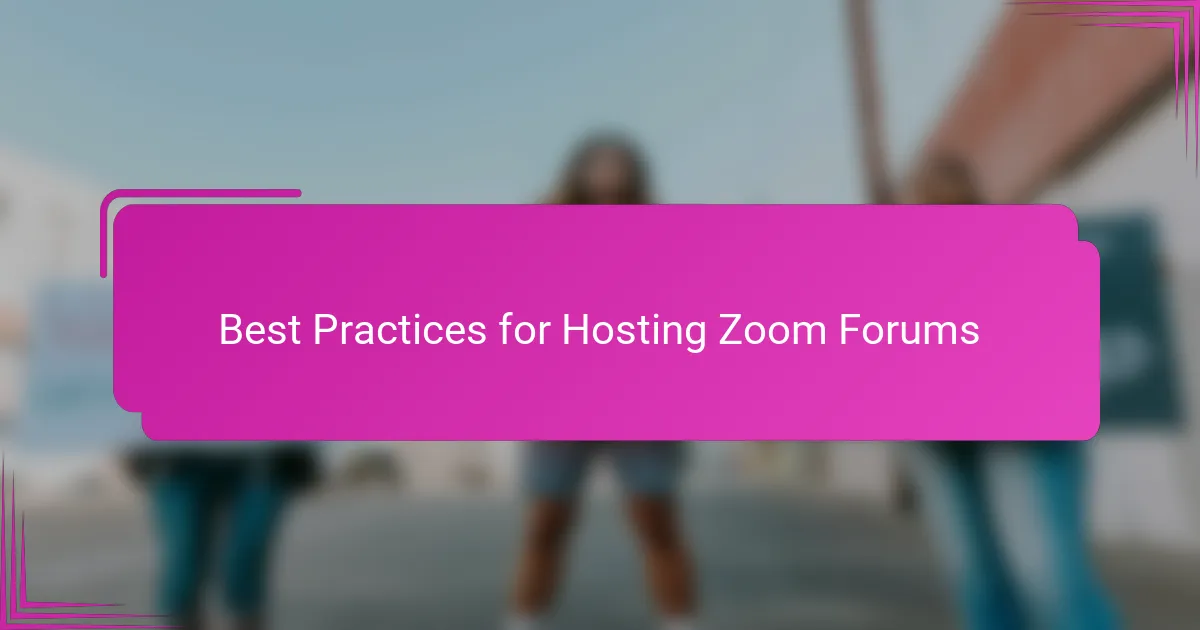
Best Practices for Hosting Zoom Forums
From my experience, one key best practice is prepping both candidates and moderators thoroughly. I always stress the importance of running a tech check before going live—testing microphones, camera angles, and internet connections can save everyone a lot of headaches. Have you ever joined a forum where the speaker’s audio was barely audible? It’s distracting and takes away from the message.
Another thing I’ve learned is the value of setting clear ground rules at the start. Outlining how and when voters can submit questions helps keep the forum orderly and respectful. I’ve seen moderators gently enforce these rules, and it makes a big difference in maintaining focus and flow.
Finally, I recommend using Zoom’s features proactively—like spotlighting speakers, managing the chat effectively, and muting when needed. These small actions create a smoother experience for voters and candidates alike. I find that when these tools are used well, it feels almost as engaging as an in-person event. Wouldn’t you agree that technology, when handled thoughtfully, can enhance rather than hinder these important conversations?

My Experience with Zoom Voter Forums
My experience with Zoom voter forums has been a mix of surprise and adaptation. I remember one evening when technical glitches disrupted a candidate’s speech just as they were making a key point—it was frustrating, yet it showed me how resilient and flexible both candidates and voters have to be in this digital space. Have you ever had to pause a conversation because of a frozen screen? That moment made me appreciate the patience required to keep these forums productive.
It’s also been fascinating to watch how attendees engage differently online. Unlike in-person events, where some voices might stay quiet, Zoom gives space for shy voters to ask questions through the chat. I’ve seen candidates respond warmly to those messages, creating a kind of connection that felt surprisingly personal despite the distance. Do you think this changes the way we build trust during campaigns?
At the same time, I sometimes notice moments when the virtual energy dips—people’s eyes wander, and conversations lose their spark without the immediacy of face-to-face interaction. It makes me wonder: how can we reignite that passion through a screen? From my perspective, incorporating interactive elements and genuine eye contact on camera seems to help bridge that gap, but it’s definitely an evolving challenge.
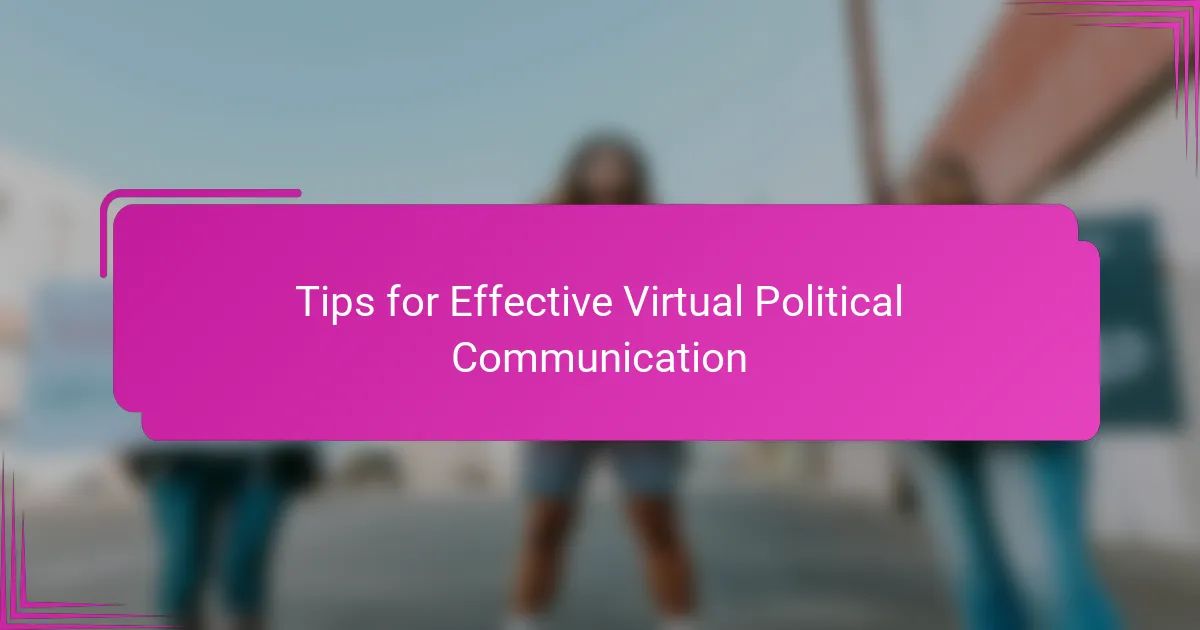
Tips for Effective Virtual Political Communication
One tip I always emphasize is the importance of authenticity. Voters can easily tell when a candidate is reading off a script versus speaking from the heart. Have you noticed how a genuine smile or a well-timed pause can make all the difference? In my experience, showing real passion—even through a screen—builds trust far better than polished but robotic delivery.
Another strategy I find effective is encouraging active participation. Instead of just talking at voters, I’ve seen forums where candidates invite questions early and often, making the conversation feel dynamic. It’s tricky to keep engagement high without in-person energy, but using Zoom’s polls or chat features can really bring people in. Don’t you agree that interaction keeps the forum lively and memorable?
Lastly, preparing for technical hiccups in advance is a must. Once, during a heated debate, a candidate’s mic failed unexpectedly, and the quick recovery turned what could have been a disaster into a moment of humor and grace. From that day on, I remind campaigns to have backups ready and to practice staying calm when things go sideways. After all, how you handle glitches can say as much about your character as your policy positions.